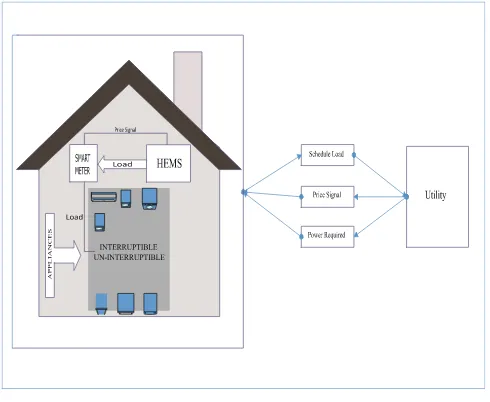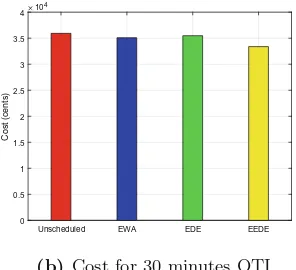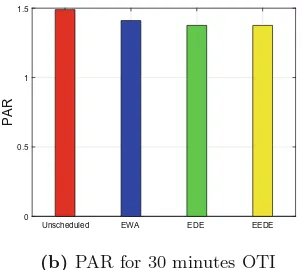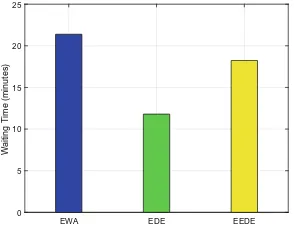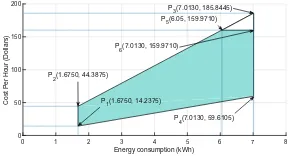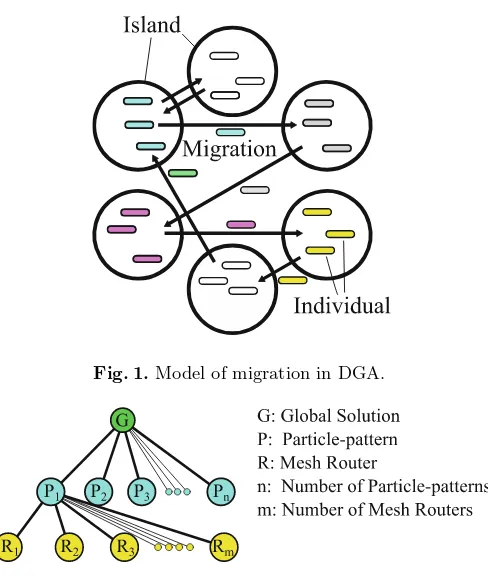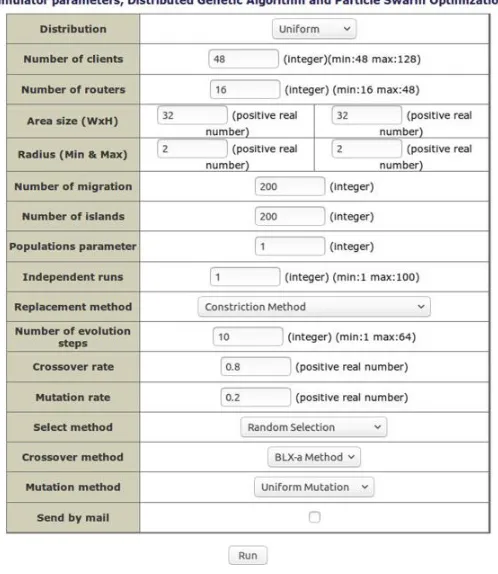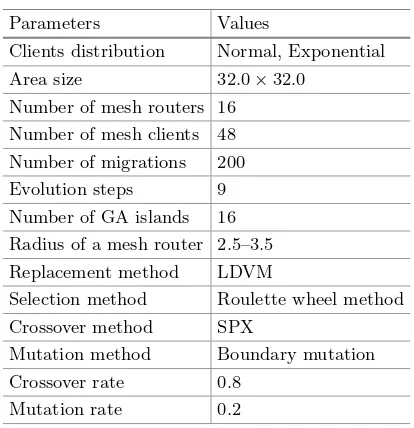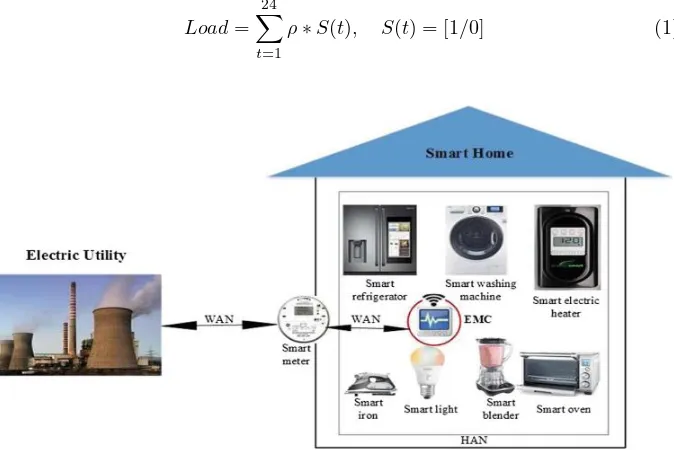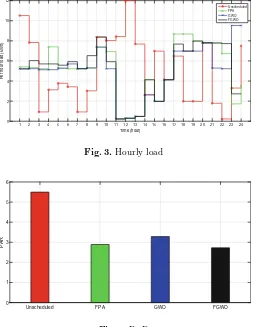Advances in Intelligent Systems and Computing
773
Leonard Barolli · Fatos Xhafa
Nadeem Javaid · Tomoya Enokido
Editors
Innovative Mobile
and Internet Services
in Ubiquitous
Computing
Proceedings of the 12th International
Conference on Innovative Mobile
Advances in Intelligent Systems and Computing
Volume 773
Series editor
The series “Advances in Intelligent Systems and Computing” contains publications on theory, applications, and design methods of Intelligent Systems and Intelligent Computing. Virtually all disciplines such as engineering, natural sciences, computer and information science, ICT, economics, business, e-commerce, environment, healthcare, life science are covered. The list of topics spans all the areas of modern intelligent systems and computing such as: computational intelligence, soft computing including neural networks, fuzzy systems, evolutionary computing and the fusion of these paradigms, social intelligence, ambient intelligence, computational neuroscience, artificial life, virtual worlds and society, cognitive science and systems, Perception and Vision, DNA and immune based systems, self-organizing and adaptive systems, e-Learning and teaching, human-centered and human-centric computing, recommender systems, intelligent control, robotics and mechatronics including human-machine teaming, knowledge-based paradigms, learning paradigms, machine ethics, intelligent data analysis, knowledge management, intelligent agents, intelligent decision making and support, intelligent network security, trust management, interactive entertainment, Web intelligence and multimedia. The publications within“Advances in Intelligent Systems and Computing”are primarily proceedings of important conferences, symposia and congresses. They cover significant recent developments in the field, both of a foundational and applicable character. An important characteristic feature of the series is the short publication time and world-wide distribution. This permits a rapid and broad dissemination of research results.
Advisory Board Chairman
Nikhil R. Pal, Indian Statistical Institute, Kolkata, India e-mail: nikhil@isical.ac.in
Members
Rafael Bello Perez, Universidad Central“Marta Abreu”de Las Villas, Santa Clara, Cuba e-mail: rbellop@uclv.edu.cu
Emilio S. Corchado, University of Salamanca, Salamanca, Spain e-mail: escorchado@usal.es
Hani Hagras, University of Essex, Colchester, UK e-mail: hani@essex.ac.uk
LászlóT. Kóczy, Széchenyi István University, Győr, Hungary e-mail: koczy@sze.hu
Vladik Kreinovich, University of Texas at El Paso, El Paso, USA e-mail: vladik@utep.edu
Chin-Teng Lin, National Chiao Tung University, Hsinchu, Taiwan e-mail: ctlin@mail.nctu.edu.tw
Jie Lu, University of Technology, Sydney, Australia e-mail: Jie.Lu@uts.edu.au
Patricia Melin, Tijuana Institute of Technology, Tijuana, Mexico e-mail: epmelin@hafsamx.org
Nadia Nedjah, State University of Rio de Janeiro, Rio de Janeiro, Brazil e-mail: nadia@eng.uerj.br
Ngoc Thanh Nguyen, Wroclaw University of Technology, Wroclaw, Poland e-mail: Ngoc-Thanh.Nguyen@pwr.edu.pl
Jun Wang, The Chinese University of Hong Kong, Shatin, Hong Kong e-mail: jwang@mae.cuhk.edu.hk
Leonard Barolli
•Fatos Xhafa
Nadeem Javaid
•Tomoya Enokido
Editors
Innovative Mobile
and Internet Services
in Ubiquitous Computing
Proceedings of the 12th International
Conference on Innovative Mobile and Internet
Services in Ubiquitous Computing
(IMIS-2018)
Editors
ISSN 2194-5357 ISSN 2194-5365 (electronic) Advances in Intelligent Systems and Computing
ISBN 978-3-319-93553-9 ISBN 978-3-319-93554-6 (eBook) https://doi.org/10.1007/978-3-319-93554-6
Library of Congress Control Number: 2018946631
©Springer International Publishing AG, part of Springer Nature 2019
This work is subject to copyright. All rights are reserved by the Publisher, whether the whole or part of the material is concerned, specifically the rights of translation, reprinting, reuse of illustrations, recitation, broadcasting, reproduction on microfilms or in any other physical way, and transmission or information storage and retrieval, electronic adaptation, computer software, or by similar or dissimilar methodology now known or hereafter developed.
The use of general descriptive names, registered names, trademarks, service marks, etc. in this publication does not imply, even in the absence of a specific statement, that such names are exempt from the relevant protective laws and regulations and therefore free for general use.
The publisher, the authors and the editors are safe to assume that the advice and information in this book are believed to be true and accurate at the date of publication. Neither the publisher nor the authors or the editors give a warranty, express or implied, with respect to the material contained herein or for any errors or omissions that may have been made. The publisher remains neutral with regard to jurisdictional claims in published maps and institutional affiliations.
Printed on acid-free paper
This Springer imprint is published by the registered company Springer International Publishing AG part of Springer Nature
Welcome Message of IMIS-2018 International
Conference Organizers
Welcome to the 12th International Conference on Innovative Mobile and Internet Services in Ubiquitous Computing (IMIS-2018), which will be held from July 4th to July 6th, 2018, at Kunibiki Messe, Matsue, Japan, in conjunction with the 12th International Conference on Complex, Intelligent and Software Intensive Systems(CISIS-2018).
This International Conference focuses on the challenges and solutions for Ubiquitous and Pervasive Computing (UPC) with an emphasis on innovative, mobile, and Internet services. With the proliferation of wireless technologies and electronic devices, there is a fast-growing interest in UPC. UPC enables to create a human-oriented computing environment where computer chips are embedded in everyday objects and interact with physical world. Through UPC, people can get online even while moving around, thus having almost permanent access to their preferred services. With a great potential to revolutionize our lives, UPC also poses new research challenges. The conference provides an opportunity for academic and industry professionals to discuss the latest issues and progress in the area of UPC. For IMIS-2018, we received many paper submissions from all over the world. The papers included in the proceedings cover important aspects of UPC research domain. This year, we received 168 submissions and after a careful review process of 3 independent reviews per submission, 47 papers were accepted (about 28% acceptance rate).
It is impossible to organize such a successful program without the help of many individuals. We would like to express our great appreciation to the authors of the submitted papers, the program committee members, who provided timely and significant reviews, and special session chairs for their great efforts. We are grateful to Honorary Chair: Prof. Makoto Takizawa, Hosei University, Japan, for his advice and support.
This year in conjunction with IMIS-2018 we have 7 International Workshops that complemented IMIS-2018 program with contributions for specific topics. We would like to thank the Workshop Co-chairs and all workshop organizers for organizing these workshops.
We thank Donald Elmazi, Yi Liu, Miralda Cuka, and Kosuke Ozera, Fukuoka Institute of Technology, Japan, for their excellent work and support as Web Administrators.
Finally, we would like to thank: Matsue City, Shimane Prefecture, Support Center for Advanced Telecommunications Technology Research (SCAT), Foundation, Japan, for their support.
We hope that all of you enjoy IMIS-2018 andfind this a productive opportunity to learn, exchange ideas, and make new contacts.
IMIS-2018 International Conference Organizers
IMIS-2018 General Chair
Leonard Barolli Fukuoka Institute of Technology (FIT), Japan
IMIS-2018 Program Committee Co-chairs
Tomoya Enokido Rissho University, JapanNadeem Javaid COMSATS Institute of IT, Pakistan Hsing-Chung Chen Asia University, Taiwan
Welcome Message from IMIS-2018 Workshops
Co-chairs
Welcome to the Workshops of the 12th International Conference on Innovative Mobile and Internet Services in Ubiquitous Computing (IMIS-2018), which will be held from July 4th to July 6th, 2018 at Kunibiki Messe, Matsue, Japan.
This year we have 7 workshops, which will be held together with IMIS-2018. The objective was to complement as much as possible the main themes of IMIS-2018 with the specific topics of the different workshops to cover many topics of Ubiquitous and Pervasive Computing (UPC).
The list of workshops follows below:
1. The 12th International Workshop on Advances in Information Security (WAIS-2018)
2. The 8th International Workshop on Mobile Commerce, Cloud Computing, Network and Communication Security (MCNCS-2018)
3. The 8th International Workshop on Intelligent Techniques and Algorithms for Ubiquitous Computing (ITAUC-2018)
4. The 8th international workshop on Future Internet and Next Generation Networks (FINGNet-2018)
5. The 7th International Workshop on Frontiers in Innovative Mobile and Internet Services (FIMIS-2018)
6. The 7th International Workshop on Sustainability Management of e-Business and Ubiquitous Commerce Engineering (SMEUCE-2018)
7. The 4th International Workshop on Big Data and IoT Security (BDITS-2018) We would like to thank IMIS-2018 International Conference Organizers for their help and support. We are grateful to the workshop organizers for their great efforts and hard work in proposing the workshops, selecting the papers, organizing interesting programs, and for the arrangements of the workshops during the conference days.
We are grateful to Donald Elmazi, Yi Liu, Miralda Cuka, and Kosuke Ozera, Fukuoka Institute of Technology, Japan, for their excellent work and support as Web Administrators.
We hope you enjoy the workshops programs and proceedings.
Workshops Co-chairs of IMIS-2018 International
Conference
Hae-Duck Joshua Jeong Korean Bible University, Korea Hiroaki Kikuchi Meiji University, Japan
Fang-Yie Leu Tunghai University, Taiwan
IMIS-2018 Organizing Committee
Honorary Chair
Makoto Takizawa Hosei University, Japan General Chair
Leonard Barolli Fukuoka Institute of Technology, Japan Program Committee Co-chairs
Tomoya Enokido Rissho University, Japan
Nadeem Javaid COMSATS Institute of IT, Pakistan Hsing-Chung Chen Asia University, Taiwan
Workshops Co-chairs
Hae-Duck Joshua Jeong Korean Bible University, Korea Hiroaki Kikuchi Meiji University, Japan
Fang-Yie Leu Tunghai University, Taiwan
Advisory Committee Members
Vincenzo Loia University of Salerno, Italy
Arjan Durresi IUPUI, USA
Kouichi Sakurai Kyushu University, Japan Award Co-chairs
Kangbin Yim SCH University, Korea
Antonio J. Jara HES-SO, Switzerland
Marek Ogiela AGH University of Science and Technology, Poland
International Liaison Co-chairs
Francesco Palmieri University of Salerno, Italy
Xiaofeng Chen Xidian University, China
Kin Fun Li University of Victoria, Canada
Publicity Co-chairs
Baojiang Cui Beijing Univ. of Posts and Telecom, China
Akio Koyama Yamagata University, Japan
Local Arrangement Co-chairs
Akimitsu Kanzaki Shimane University, Japan Keita Matsuo Fukuoka Institute of Technology
Elis Kulla Okayama University of Science, Japan
Web Administrators
Donald Elmazi Fukuoka Institute of Technology, Japan
Yi Liu Fukuoka Institute of Technology, Japan
Miralda Cuka Fukuoka Institute of Technology, Japan Kosuke Ozera Fukuoka Institute of Technology, Japan
Track Areas and PC Members
1. Multimedia and Web Computing
Track Co-chairs
Chi-Yi Lin Tamkang University, Taiwan
Tomoyuki Ishida Ibaraki University, Japan PC Members
Noriki Uchida Fukuoka Institute of Technology, Japan
Tetsuro Ogi Keio University, Japan
Yasuo Ebara Kyoto University, Japan
Hideo Miyachi Tokyo City University, Japan
Kaoru Sugita Fukuoka Institute of Technology, Japan
Chia-Mu Yu National Chung Hsing University, Taiwan
Chih-Lin Hu National Central University, Taiwan
Ching-Ting Tu Tamkang University, Taiwan
Shih-Hao Chang Tamkang University, Taiwan
2. Context and Location-Aware Computing
Track Co-chairs
Massimo Ficco University of Campania Luigi Vanvitelli, Italy
Jeng-Wei Lin Tunghai University, Taiwan
Neil Yen The University of Aizu, Japan
PC Members
Paolo Bellavista University of Bologna, Italy
David Camacho Universidad Autónoma de Madrid, Spain Michal Choras University of Science and Technology, Poland Gianni D’Angelo University of Benevento, Italy
Hung-Yu Kao National Cheng Kung University, Taiwan
Ray-I Chang National Taiwan University, Taiwan
Mu-Yen Chen National Taichung University of Science and Technology, Taiwan
Shian-Hua Lin National Chi Nan University, Taiwan Chun-Hsin Wu National University of Kaohsiung, Taiwan Sheng-Lung Peng National Dong Hwa University, Taiwan
3. Data Management and Big Data
Track Co-chairs
Been-Chian Chien National University of Tainan, Taiwan Akimitsu Kanzaki Shimane University, Japan
Wen-Yang Lin National University of Kaohsiung, Taiwan PC Members
Rung-Ching Chen Chaoyang University of Technology, Taiwan Mong-Fong Horng National Kaohsiung University of Applied
Sciences, Taiwan
Bao-Rong Chang National University of Kaohsiung, Taiwan Tomoki Yoshihisa Osaka University, Japan
Hideyuki Kawashima The University of Tsukuba, Japan
Pruet Boonma Chiang Mai University, Thailand
Wen-Yang Lin National University of Kaohsiung, Taiwan
Nik Bessis Edge Hill University, UK
James Tan SIM University, Singapore
Kun-Ta Chuang National Cheng Kung University, Taiwan Jerry Chun-Wei Lin Harbin Institute of Technology Shenzhen
Graduate School, China
4. Security, Trust and Privacy
Track Co-chairs
Tianhan Gao Northeastern University, China
Aniello Castiglione University of Salerno, Italy
Joan Arnedo Moreno Open University of Catalonia, Spain PC Members
Qingshan Li Peking University, China
Zhenhua Tan Northeastern University, China
Zhi Guan Peking University, China
Nan Guo Northeastern University, China
Xibin Zhao Tsinghua University, China
Cristina Alcaraz Universidad de Málaga, Spain Massimo Cafaro University of Salento, Italy Giuseppe Cattaneo University of Salerno, Italy
Zhide Chen Fujian Normal University, China
Clara Maria Colombini, University of Milan, Italy
Richard Hill University of Derby, UK
Dong Seong Kim University of Canterbury, New Zealand Victor Malyshkin Russian Academy of Sciences, Russia Barbara Masucci University of Salerno, Italy
Arcangelo Castiglione University of Salerno, Italy
Xiaofei Xing Guangzhou University, China
Mauro Iacono University of Campania Luigi Vanvitelli, Italy Joan Melià Universitat Oberta de Catalunya, Spain Jordi Casas Universitat Oberta de Catalunya, Spain Jordi Herrera Universitat Autònoma de Barcelona, Spain Antoni Martínez Universitat Rovira i Virgili, Spain
Francesc Sebé Universitat de Lleida, Spain
5. Energy Aware and Pervasive Systems
Track Co-chairs
Chi Lin Dalian University of Technology, China
Elis Kulla Okayama University of Science, Japan
PC Members
Jiankang Ren Dalian University of Technology, China
Qiang Lin Dalian University of Technology, China
Peng Chen Dalian University of Technology, China
Tomoya Enokido Rissho University, Japan Makoto Takizawa Hosei University, Japan
Oda Tetsuya Okayama University of Science, Japan Admir Barolli Aleksander Moisiu University of Durres,
Albania
Makoto Ikeda Fukuoka Institute of Technology, Japan Olivier Terzo Istituto Superiore Mario Boella, Italy
6. Modeling, Simulation and Performance Evaluation
Track Co-chairs
Tetsuya Shigeyasu Prefectural University of Hiroshima, Japan Bhed Bahadur Bista Iwate Prefectural University, Japan PC Members
Masaaki Noro Fujitsu Laboratory, Japan
Masaaki Yamanaka Japan Coast Gaurd Academy, Japan Nobuyoshi Sato Iwate Prefectural University, Japan Tetsuya Shigeyasu Prefectural University of Hiroshima, Japan Jiahong Wang Iwate Prefectural University, Japan Shigetomo Kimura University of Tsukuba, Japan
Chotipat Pornavalai King Mongkut’s Institute of Technology Ladkrabang, Thailand
Danda B. Rawat Howard University, USA
Gongjun Yan University of Southern Indiana, USA
7. Wireless and Mobile Networks
Track Co-chairs
Luigi Catuogno University of Salerno, Italy
Hwamin Lee Soonchunhyang University, Korea
PC Members
Aniello Del Sorbo Orange Labs, Orange Innovation, UK Clemente Galdi University of Naples Federico II, Italy Stefano Turchi University of Florence, Italy
Ermelindo Mauriello Deloitte Spa, Italy
Gianluca Roscigno University of Salerno, Italy
DaeWon Lee Seokyoung University, Korea
JongHyuk Lee Samsung Electronics, Korea
SungHo Chin LG Electronics, Korea
JiSu Park Korea University, Korea
Jaehwa Chung Korea National Open University, Korea
8. Intelligent Technologies and Applications
Track Co-chairs
Marek Ogiela AGH University of Science and Technology, Krakow, Poland
Yong-Hwan Lee Wonkwang University, Korea
Hsing-Chung Chen Asia University, Taiwan PC Members
Gangman Yi Dongguk University, Korea
Hoon Ko J. E. Purkinje University, Czech Republic
Lidia Ogiela AGH University of Science and Technology, Poland
Libor Mesicek J. E. Purkinje University, Czech Republic Rung-Ching Chen Chaoyang University of Technology, Taiwan Mong-Fong Horng National Kaohsiung University of Applied
Sciences, Taiwan
Bao-Rong Chang National University of Kaohsiung, Taiwan Shingo Otsuka Kanagawa Institute of Technology, Japan Tomoki Yoshihisa Osaka University, Japan
Pruet Boonma Chiang Mai University, Thailand
Izwan Nizal Mohd Shaharanee University Utara Malaysia
Youngseop Kim Dankook University, Korea
Cheong-Ghil Kim Namseoul University, Korea
Fumitaka Ono Tokyo Polytechnic University, Japan Schelkens Peter Vrije Universiteit Brussel, Belgium
You-Seok Won Uzbrainnet Inc., Korea
Zhenhua Tan Northeastern University, China
Tianhan Gao Northeastern University, China
Nan Guo Northeastern University, China
Yung-Fa Huang Huang Chaoyang University of Technology, Taiwan
Tzu-Liang Kung Asia University, Taiwan
9. Cloud Computing and Service-Oriented Applications
Track Co-chairs
Baojiang Ciu Beijing University of Posts and Telecommunications, China Francesco Palmieri University of Salerno, Italy PC Members
Aniello Castiglione University of Salerno, Italy
Ashiq Anjum University of Derby, UK
Beniamino Di Martino University of Campania Luigi Vanvitelli, Italy
Gang Wang Nankai University, China
Shaozhang Niu Beijing University of Posts and Telecommunications, China Jianxin Wang Beijing Forestry University, China
Jie Cheng Shandong University, China
Shaoyin Cheng University of Science and Technology of China, China
Jingling Zhao Beijing University of Posts and Telecommunications, China
Qing Liao Beijing University of Posts and
Telecommunications, China
Xiaohui Li Wuhan University of Science and Technology, China
Chunhong Liu Hainan Normal University, China
Yan Zhang Yan Hubei University, China
10. Ontology and Semantic Web
Track Co-chairs
Alba Amato Italian National Research Center (CNR), Italy Fong-Hao Liu National Defense University, Taiwan
Farookh Hussain University of Technology Sydney, Australia PC Members
Flora Amato University of Naples Federico II, Italy Claudia Di Napoli Italian National Research Center (CNR), Italy Salvatore Venticinque University of Campania Luigi Vanvitelli, Italy Marco Scialdone University of Campania Luigi Vanvitelli, Italy
Wei-Tsong Lee Tamkang University, Taiwan, ROC
Tin-Yu Wu National Ilan University, Taiwan, ROC
Liang-Chu Chen National Defense University, Taiwan, ROC Omar Khadeer Hussain University of New South Wales, Canberra,
Australia
Salem Alkhalaf Qassim University, Saudi Arabia
Omar Khadeer Hussain University of New South Wales, Canberra, Australia
Salem Alkhalaf Qassim University, Saudi Arabia Osama Alfarraj King Saud University, Saudi Arabia Thamer AlHussain Saudi Electronic University, Saudi Arabia Mukesh Prasad University of Technology, Sydney, Australia
11. IoT and Opportunistic Networking
Track Co-chairs
Antonio Jara HES-SO, Switzerland
Isaac Woungang Ryerson University, Canada PC Members
Gianluca Rizzo HES-SO, Switzerland
Marcin Pawlowski Warsaw University of Technology, Poland
Gaetano Manzo HES-SO, Switzerland
Dominique Gabioud HES-SO, Switzerland
Markus Jung Osram, Germany
Sebastien Ziegler Mandat International, Switzerland
Pierre-AndréMudry HES-SO, Switzerland
Leire Bastida Tecnalia, Spain
Charalampos Doukas CREATE-NET, Italy
Marco Fiore CNR, Italy
Diego Gachet Universidad Europea de Madrid, Spain
Dominique Genoud HES-SO, Switzerland
Dimosthenis Ioannidis CERTH-ITI, Greece
Ved Kafle NICT, Japan
Daeyoung Kim KAIST, Korea
Lambros Lambrinos Cyprus University of Technology, Cyprus
Pedro Malo Universidade Nova de Lisboa, Portugal
Septimiu Nechifor Siemens, Romania
Alexis Olivereau CEA, France
Marcin Piotr Jagiellonian University, Poland Mirko Presser Alexandra Institute, Denmark
Martin Brynskov OASC, Denmark
Dario Russo National Research Council of Italy, Italy
Martin Serrano NUIG, Ireland
Felix Villanueva UCLM, Spain
12. Embedded Systems and Wearable Computers
Track Co-chairs
Jiankang Ren Dalian University of Technology, China Keita Matsuo Fukuoka Institute of Technology, Japan
Kangbin Yim SCH University, Korea
PC Members
Xiulong Liu The Hong Kong Polytechnic University, Hong Kong
Yong Xie Xiamen University of Technology, Xiamen,
China
Yang Zhao Tianjin University, Tianjin, China
Fangmin Sun Shenzhen Institutes of Advanced Technology, Chinese Academy of Sciences, China Shaobo Zhang Central South University, Changsha, China
Kun Wang Liaoning Police Academy, Dalian, China
IMIS-2018 Reviewers
Welcome Message from WAIS-2018
International Workshop Organizers
It is our great pleasure to welcome you to the 12th International Workshop on Advances in Information Security (WAIS-2018). The workshop is held in con-junction with 12th International Conference on Innovative Mobile and Internet Services in Ubiquitous Computing (IMIS-2018) from July 4th to July 6th, 2018, at Kunibiki Messe, Matsue, Japan.
As computing systems have begun to pervade every aspect of daily life, people need to be able to trust them—so much of their lives depend on them. Today, many of these systems are far too vulnerable to cyber attacks that can inhibit their operation, corrupt valuable data, or expose private information. Future systems will include sensors and computers everywhere, exacerbating the attainment of security and privacy. Current security practices largely address current and known threats, but there is a need for research to take account of future threats too.
The goal of WAIS-2018 is to bring together computer scientists, industrial engineers, and researchers to discuss and exchange experimental or theoretical results, novel designs, work-in-progress, experience, case studies, and trend-setting ideas in the area of Information Security.
We would like to thank all authors for submitting their research works to the workshop and the PC Members for checking carefully the papers.
We look forward to meet all of you in Matsue, Japan.
WAIS-2018 Workshop Co-chairs
Leonard Barolli Fukuoka Institute of Technology (FIT), Japan Arjan Durresi Indiana University–Purdue University at
Indianapolis (IUPUI), USA Hiroaki Kikuchi Meiji University, Japan
WAIS-2018 Organizing Committee
Workshop Co-chairs
Leonard Barolli Fukuoka Institute of Technology (FIT), Japan Arjan Durresi Indiana University–Purdue University at
Indianapolis (IUPUI), USA Hiroaki Kikuchi Meiji University, Japan Advisory Co-chairs
Makoto Takizawa Hosei University, Japan
Raj Jain Washington University in St. Louis, USA
Program Committee Members
Sriram Chellappan Missouri University of Science and Technology, USA
Koji Chida NTT, Japan
Tesuya Izu Fujitsu Laboratories, Japan
Qijun Gu Texas State University, San Marcos, USA
Youki Kadobayashi Nara Institute of Science and Technology, Japan
Akio Koyama Yamagata University, Japan
Michiharu Kudo IBM Japan, Japan
Sanjay Kumar Madria Missouri University of Science and Technology, USA
Masakatsu Morii Kobe University, Japan Masakatsu Nishigaki Shizuoka University, Japan
Vamsi Paruchuri University of Central Arkansas, USA Hiroshi Shigeno Keio University, Japan
Yuji Suga Internet Initiative Japan Inc., Japan
Keisuke Takemori KDDI Co., Japan
Ryuya Uda Tokyo University of Technology, Japan
Xukai Zou Indiana University–Purdue University Indianapolis, USA
Welcome Message from MCNCS-2018
International Workshop Chair
Welcome to the 8th International Workshop on Mobile Commerce, Cloud Computing, Network and Communication and their Securities (MCNCS-2018) which will be in conjunction with the 12th International Conference on Innovative Mobile and Internet Services in Ubiquitous Computing (IMIS-2018) from July 4th to July 6th, 2018, at Kunibiki Messe, Matsue, Japan.
Computer network and communication have been a part of our everyday life. People use them to contact others almost anytime anywhere. On the other hand, hackers due to business benefits, enjoying their skill/professional achievement or some other reasons very often attack, intrude, or penetrate our systems. This is the key reason why computer/network and their securities have been the important issues in computer research. Many researchers have tried to do their best to develop system network, security techniques, and the methods to protect a system. But system attacks still occur worldwide every day. In fact, current network techniques and system security technology are still far away from convenient to use and completely secure and should be further improved.
This workshop aims to present the innovative researches, methods and for mobile commerce, cloud computing, network and communication and their secu-rities. The workshop contains high-quality research papers, which were selected carefully by Program Committee Members.
It is impossible to organize such a successful program without the help of many individuals. We would like to express our appreciation to the authors of the sub-mitted papers and to the program committee members, who provided timely and significant reviews.
We hope all of you will enjoy MCNCS-2018 and find this a productive opportunity to exchange ideas with many researchers.
MCNCS-2018 International Workshop Organizers
MCNCS-2018 Workshop Co-chairs
Fang-Yie Leu Tunghai University, Taiwan
Aniello Castiglione University of Salerno, Italy
Chu-Hsing Lin Tunghai University, Taiwan
MCNCS-2018 Advisory Co-chairs
Yi-Li Huang Tunghai University, Taiwan
Jung-Chun Liu Tunghai University, Taiwan
Kun-Lin Tsai Tunghai University, Taiwan
MCNCS-2018 Organizing Committee
Workshop Co-chairs
Fang-Yie Leu Tunghai University, Taiwan
Aniello Castiglione University of Salerno, Italy
Chu-Hsing Lin Tunghai University, Taiwan
Advisory Co-chairs
Yi-Li Huang Tunghai University, Taiwan
Jung-Chun Liu Tunghai University, Taiwan
Kun-Lin Tsai Tunghai University, Taiwan
Program Committee Members
Alessandra Sala University of California Santa Barbara, USA Antonio Colella Italian Army, Italy
Chin-Cheng Lien Soochow University, Taiwan
Chin-Ling Chen Chaoyang University of Technology, Taiwan Chiu-Ching Tuan National Taipei University of Technology,
Taiwan
Claudio Soriente Universitat Politecnica de Madrid, Spain Francesco Palmieri University of Salerno, Italy
Fuw-Yi Yang Chaoyang University of Technology, Taiwan
I-Long Lin Central Police University, Taiwan
Ilsun You Korean Bible University, Korea
Jason Ernst University of Guelph, Canada
Jinn-Ke Jan National Chung Hsing University, Taiwan
Jung-Chun Liu TungHai University, Taiwan
Lein Harn University of Missouri Kansas City, USA
Sen-Tang Lai Shih Chien University, Taiwan
Sergio Ricciardi Universitat Politècnica de Catalunya, Spain Shyhtsun Felix Wu University of California, Davis, USA Tzung-HerChen National Chiayi University, Taiwan
Ugo Fiore University of Naples, Italy
Heru Susanto University of Brunei, Brunei
Welcome Message from ITACU 2018
International Workshop Co-chairs
Welcome to the 8th International Workshop on Intelligent Techniques and Algorithms for Ubiquitous Computing (ITAUC-2018) which will be held in con-junction with the 12th International Conference on Innovative Mobile and Internet Services in Ubiquitous Computing (IMIS-2018) at Kunibiki Messe, Matsue, Japan, from July 4th to July 6th, 2018.
The aim of this workshop is to present the innovative researches, methods, and algorithms for wireless networks, sensor networks, and ubiquitous computing. It is intended to facilitate exchange of ideas and collaborations among researchers from computer science, network computing, mathematics, statistics, intelligent comput-ing and such related sciences, to discuss various aspects of innovative intelligent algorithms and networks security, intelligent techniques for sensor networks and radio networks, and their applications.
Many people have kindly helped us to prepare and organize the ITAUC-2018 workshop. First, we highly thank the authors who submitted high-quality papers and reviewers who carefully evaluated these submissions. We thank Honorary Co-chair, General Co-chairs, PC Co-chairs, and Workshops Co-chairs of IMIS-2018 for their advice and support to make possible organization of ITAUC-2018.
We hope you will enjoy the conference and have a great time in Torino, Italy.
ITAUC-2018 Co-chairs
Leonard Barolli Fukuoka Institute of Technology, Japan Hsing-Chung Chen Asia University, Taiwan
Tzu-Liang Kung Asia University, Taiwan
ITAUC-2018 Organizing Committee
Workshop Co-chairs
Leonard Barolli Fukuoka Institute of Technology, Japan Hsing-Chung Chen Asia University, Taiwan
Tzu-Liang Kung Asia University, Taiwan
Program Committee Members
Arjan Durresi Indiana University–Purdue University at Indianapolis (IUPUI), USA Makoto Ikeda Fukuoka Institute of Technology, Japan
Akio Koyama Yamagata University, Japan
Neng-Yih Shih Asia University, Taiwan
Yeong-Chin Chen Asia University, Taiwan
Timothy K. Shih National Central University, Taiwan Hsi-Chin Hsin National United University, Taiwan Ming-Shiang Huang Asia University, Taiwan
Chia-Cheng Liu Asia University, Taiwan
Chia-Hsin Cheng National Formosa University Yunlin County, Taiwan
Tzu-Liang Kung Asia University, Taiwan
Gene Shen Asia University, Taiwan
Jim-Min Lin Feng Chia University, Taiwan
Chia-Cheng Liu Asia University, Taiwan
Yen-Ching Chang Chung Shan Medical University, Taiwan Shu-Hong Lee Chienkuo Technology University, Taiwan Ho-Lung Hung Chienkuo Technology University, Taiwan
Gwo-Ruey Lee Lung-Yuan Research Park, Taiwan
Li-Shan Ma Chienkuo Technology University, Taiwan
Chung-Wen Hung National Yunlin University of Science & Technology University, Taiwan
Yung-Chen Chou Asia University, Taiwan
Chen-Hung Chuang Asia University, Taiwan
Jing-Doo Wang Asia University, Taiwan
Jui-Chi Chen Asia University, Taiwan
Young-Long Chen National Taichung University of Science and Technology, Taiwan
Web Administrators
Welcome Message from FINGNet-2018
International Workshop Organizers
Welcome to the 8th International Workshop on Future Internet and Next Generation Networks (FINGNet-2018), which is held in conjunction with the 12th International Conference on Innovative Mobile and Internet Services in Ubiquitous Computing (IMIS-2018) from July 4th to July 6th, 2018, at Kunibiki Messe, Matsue, Japan.
Over the last years, new paradigms and concepts have emerged in telecommu-nication networks that are currently being realized in the Internet. Among those are the social networking, the peer-to-peer, and the quality of experience paradigms. Nevertheless, it is difficult or even impossible to predict how the network of the future will emerge. However, it is quite clear that some major issues have to be addressed for the future Internet or next-generation networks. This includes solu-tions, e.g., for security and privacy issues, such as spam or service-oriented approaches to enableflexible networking. In addition, new applications or services emerge such as social media networks or crowdsourcing platforms enabling col-laborative networking of Internet users. To address these issues, there is an increased interest in the scientific community to propose and design new algorithms and methodologies as well as to understand and model new applications and services.
The aim of this workshop is to present such innovative research, methods, and numerical analysis related to advanced Internet and network technologies. The workshop contains high-quality research papers, which were carefully selected by the technical program committee members.
It is impossible to organize such a successful program without the help of many authors, program committee members, and organizers. We also would like to deeply express our appreciation to the authors of the submitted papers and to the program committee members, who provided timely and significant reviews.
We hope all of you will enjoy FINGNet-2018 and find this a productive opportunity to exchange ideas with many researchers. Finally, we would like to thank everyone for participating in FINGNet-2018 workshop. We hope that you will find the workshop along with other joint workshops and conferences stimulating.
FINGNet-2018 Workshop Co-chairs
Tobias Hossfeld University of Wuerzburg, Germany
Inshil Do Ewha Womans University, Korea
Hae-Duck Joshua Jeong Korean Bible University, Korea
FINGNet-2018 Workshop Advisory Co-chairs
Kijoon Chae Ewha Womans University, Korea
Akihiro Nakao University of Tokyo, Japan
Jiyoung Lim Korean Bible University, Korea
FINGNet-2018 Organizing Committee
Workshop Co-chairs
Tobias Hossfeld University of Wuerzburg, Germany
Inshil Do Ewha Womans University, Korea
Hae-Duck Joshua Jeong Korean Bible University, Korea Advisory Co-chairs
Kijoon Chae Ewha Womans University, Korea
Akihiro Nakao University of Tokyo, Japan
Jiyoung Lim Korean Bible University, Korea
Program Committee Members
Kento Aida National Institute of Informatics, Japan
Xiangjiu Che Jilin University, China
Kyo-Il Chung ETRI, Korea
Cuong Dinh University of Science Ho Chi Minh City, Vietnam
Greg Ewing University of Canterbury, New Zealand
Shanmugasundaram Hariharan B.S. Abdur Rahman University, India
P. T. Ho University of Hong Kong, Hong Kong
Ching-Hsien Hsu Chung Hua University, Taiwan Wen-Tzeng Huang Minghsin University of Science and
Technology, Taiwan
Hai Jin Huazhong University of Science and
Technology, China
Hyung Chan Kim ETRI, Korea
Joo-Man Kim Pusan National University, Korea
Wing-Keung Kwan University of Hong Kong, Hong Kong Chong Deuk Lee Chonbuk National University, Korea
JongSuk Ruth Lee KISTI, Korea
Hing Yan Lee IDA, Singapore
Fang-Pang Lin NCHC, Taiwan
Te-Lung Liu NCHC, Taiwan
Nobutaka Matsumoto KDDI R&D Laboratories Inc., Japan Don McNickle University of Canterbury, New Zealand
Nam Ng University of Hong Kong, Hong Kong
Seungjin Park University of Southern Indiana, USA Anan Phonphoem Kasetsart University, Thailand
Zhuzhong Qian Nanjing University, China
Kiwook Sohn ETRI, Korea
Torab Torabi La Trobe University, Australia Putchong Uthayopas Kasetsart University, Thailand
Xiaohui Wei Jilin University, China
Lawrence WC Wong National University of Singapore, Singapore
Kun-Ming Yu Chung Hua University, Taiwan
Welcome Message from FIMIS-2018
International Workshop Chair
It is our great pleasure to welcome you the 7th International Workshop on Frontiers in Innovative Mobile and Internet Services (FIMIS-2018), which will be held in conjunction with the 12th International Conference on Innovative Mobile and Internet Services in Ubiquitous Computing (IMIS-2018) from July 4th to July 6th, 2018, at Kunibiki Messe, Matsue, Japan.
The workshop focuses on challenges and solutions for Ubiquitous and Pervasive Computing (UPC) with an emphasis on innovative, mobile and Internet services. Especially, the main goal of FIMIS-2018 is to bring together researchers, practi-tioners, and decision-makers to demonstrate the state of the art as well as future directions for UPC.
The organization of a workshop needs the help of many people. We would like to express our special thanks to the authors and reviewers whose contribution makes this workshop a reality.
Hopefully, you will enjoy the workshop and have a great time in Matsue, Japan.
FIMIS-2018 Workshop Chair
Leonard Barolli Fukuoka Institute of Technology, Japan
FIMIS-2018 Organizing Committee
Workshop Co-chairs
Leonard Barolli Fukuoka Institute of Technology, Japan Program Committee Members
Feilong Tang Shanghai Jiao Tong University, China
Arjan Durresi IUPUI, USA
Hae-Duck Joshua Jeong Korean Bible University, Korea Hiroaki Kikuchi Meiji University, Japan
Chu-Hsing Lin Tunghai University, Taiwan
Jinshu Su National University of Defense Technology, China
Tomoya Enokido Rissho University
Fang-Yie Leu Tunghai University, Taiwan
Chunqing Wu National University of Defense Technology, China
Makoto Ikeda Fukuoka Institute of Technology, Japan Marek Ogiela AGH University of Science and Technology,
Poland
Kin Fun Li University of Victoria, Canada
Joan Arnedo Open University of Catalonia, Spain Tetsuya Shigeyasu Prefectural University of Hiroshima, Japan
Kangbin Yim Soonchunhyang University, Korea
Web Administrator
Welcome Message from SMEUCE-2018
International Workshop Co-chairs
We welcome you to the 7th International Workshop on Sustainability Management of e-Business and Ubiquitous Commerce Engineering (SMEUCE-2018), which will be held in conjunction with the 12th International Conference on Innovative Mobile and Internet Services in Ubiquitous Computing (IMIS-2018) at Kunibiki Messe, Matsue, Japan, from July 4th to July 6th, 2018.
The aim objective of SMEUCE-2018 is to provide a platform for academics, business leaders, consultants, and other professionals from all over the world to exchange the latest researchfindings in the field of sustainability management of e-business, e-business, and u-business (ubiquitous business) engineering, Cloud commerce and their relative applications. This conference provides opportunities for the delegates to exchange new ideas and application experiences face to face, to establish business or research relations and to find global partners for future collaboration.
Many people have kindly helped us to prepare and organize the SMEUCE-2018 workshop. First, we highly thank the authors who submitted high-quality papers and reviewers who carefully evaluated these submissions. We are thankful to Prof. Makoto Takizawa, Hosei University, Japan, as Honorary Chair of IMIS-2018. We would like to give our special thanks to Prof. Leonard Barolli as General Chair of IMIS-2018 for their strong encouragement and guidance to organize this workshop. We would like to thank the PC Co-chairs and Workshops Co-chairs for their advice and support to make possible organization of SMEUCE-2018.
We hope you will enjoy the conference and have a great time in Matsue, Japan.
SMEUCE-2018 Co-chairs
Kuei-Yuan Wang Asia University, Taiwan
Ying-Li Lin Asia University, Taiwan
Mei-Hua Liao Asia University, Taiwan
Hsing-Chung Chen Asia University, Taiwan
Hidekazu Sone Shizuoka University of Art and Culture, Japan
SMEUCE-2018 Organizing Committee
Workshop Co-chairs
Kuei-Yuan Wang Asia University, Taiwan
Ying-Li Lin Asia University, Taiwan
Mei-Hua Liao Asia University, Taiwan
Hsing-Chung Chen Asia University, Taiwan
Hidekazu Sone Shizuoka University of Art and Culture, Japan Program Committee Members
Ching-Hui Shih Asia University, Taiwan
Shu-Hui Chuang Asia University, Taiwan
Ting-Chang Chang Asia University, Taiwan
Ya-Wen Yu Asia University, Taiwan
Shyh-Weir Tzang Asia University, Taiwan
Chia-Hsin Cheng National Formosa University Yunlin County, Taiwan
Shu-Hong Lee Chienkuo Technology University, Taiwan Ho-Lung Hung Chienkuo Technology University, Taiwan Chung-Wen Hung National Yunlin University of Science &
Technology University, Taiwan Horimoto Saburo Shiga University, Japan
Pulukkuttige Don Nimal University of Peradeniya, Sri Lanka
Mei Hua Huang Asia University, Taiwan
Young-Long Chen National Taichung University of Science and Technology, Taiwan
Web Administrator Chair
Welcome Message from BDITS-2018
International Workshop Co-chairs
Welcome to the 4th International Workshop on Big Data and IoT Security (BDITS-2018), which is held in conjunction with the 12th International Conference on Innovative Mobile and Internet Services in Ubiquitous Computing (IMIS-2018), from July 4th to July 6th, 2018, at Kunibiki Messe, Matsue, Japan.
The aim objective of BDITS-2018 is to provide a platform for academics, the leaders of network security, consultants and other professionals from all over the world to exchange the latest researchfindings in thefield of Security Technologies of Big Data and Internet of Things (IoT), cloud and ubiquitous computing and their applications. This workshop provides opportunities for the delegates to exchange new ideas and application experiences face to face, to establish research relations and tofind global partners for future collaboration.
Many people have kindly helped us to prepare and organize the BDITS-2018 workshop. First, we would like to thank the authors who submitted high-quality papers and reviewers who carefully evaluated the submitted papers.
We would like to give our special thanks to Prof. Leonard Barolli for his strong encouragement and guidance to organize this workshop. We would like to thank PC Co-chairs and Workshop Co-chairs of IMIS-2018 for their kind support. We would like to thank all PC members for their serious review works in order to make successful organization of BDITS-2018.
We hope you will enjoy the conference and have a great time in Matsue, Japan.
BDITS-2018 Co-chairs
Baojiang Cui Beijing University of Posts and Telecommunications, China
Zheli Liu Nankai University, China
Tainhan Gao National Pilot Software College, China Hsing-Chung Chen Asia University, Taiwan
BDITS-2018 Organizing Committee
Workshop Co-chairs
Baojiang Cui Beijing University of Posts and Telecommunications, China
Zheli Liu Nankai University, China
Tainhan Gao National Pilot Software College, China Hsing-Chung Chen Asia University, Taiwan
Program Committee Members
Nan Guo National Pilot Software College, China
Makoto Ikeda Fukuoka Institute of Technology, Japan
Neng-Yih Shih Asia University, Taiwan
Timothy K. Shih National Central University, Taiwan
Yung-Fa Huang Chaoyang University of Technology, Taiwan Chia-Hsin Cheng National Formosa University Yunlin County,
Taiwan
Tzu-Liang Kung Asia University, Taiwan
Shu-Hong Lee Chienkuo Technology University, Taiwan Ho-Lung Hung Chienkuo Technology University, Taiwan
Gwo-Ruey Lee Lung-Yuan Research Park, Taiwan
Li-Shan Ma Chienkuo Technology University, Taiwan
Chung-Wen Hung National Yunlin University of Science & Technology University, Taiwan
Jui-Chi Chen Asia University, Taiwan
Web Administrator
SNS as Social Sensors: Technologies
for Extracting Knowledge from SNSs
Takahiro Hara
Osaka University, Osaka, Japan
Abstract. Due to surprisingly rapid popularization of smartphones and Social Network Services (SNSs), ordinary people generate and share a large amount of data using SNSs on smartphones. Recent studies have revealed that messages posted on SNSs such as Twitter can be used for detecting various kinds of facts in the real world such as events, trends, and user sentiment, which can be considered as kinds of social sensor data. Social sensor data are very useful for Big Data analysis because these tell many things representing the real world, which cannot be known by only ana-lyzing traditional Big Data.
Fog Computing: A New Research Direction
in Distributed Computing
—
Applications,
Issues and Challenges
Farookh Khadeer Hussain
University of Technology Sydney (UTS), Sydney, Australia
Contents
The 12th International Conference on Innovative Mobile and Internet Services in Ubiquitous Computing (IMIS-2018)
An Energy Efficient Scheduling of a Smart Home Based
on Optimization Techniques. . . 3 Aqib Jamil, Nadeem Javaid, Muhammad Usman Khalid,
Muhammad Nadeem Iqbal, Saad Rashid, and Naveed Anwar Differential-Evolution-Earthworm Hybrid Meta-heuristic Optimization Technique for Home Energy Management
System in Smart Grid . . . 15 Nadeem Javaid, Ihtisham Ullah, Syed Shahab Zarin, Mohsin Kamal,
Babatunji Omoniwa, and Abdul Mateen
Performance Analysis of Simulation System Based on Particle Swarm Optimization and Distributed Genetic Algorithm for WMNs
Considering Different Distributions of Mesh Clients . . . 32 Admir Barolli, Shinji Sakamoto, Leonard Barolli, and Makoto Takizawa
A Hybrid Flower-Grey Wolf Optimizer Based Home Energy
Management in Smart Grid. . . 46 Pamir, Nadeem Javaid, Attiq ullah Khan, Syed Muhammad Mohsin,
Yasir Khan Jadoon, and Orooj Nazeer
A Fuzzy-Based Approach for Improving Peer Coordination
Quality in MobilePeerDroid Mobile System. . . 60 Yi Liu, Kosuke Ozera, Keita Matsuo, Makoto Ikeda,
and Leonard Barolli
A Fuzzy-Based System for Selection of IoT Devices in Opportunistic Networks Considering IoT Device Contact Duration, Storage
and Remaining Energy. . . 74 Miralda Cuka, Donald Elmazi, Keita Matsuo, Makoto Ikeda,
and Leonard Barolli
Efficient Routing in Geographic and Opportunistic Routing
for Underwater WSNs . . . 86 Ghazanfar Latif, Nadeem Javaid, Aasma Khan, Aisha Fatima,
Landing Jatta, and Wahab Khan
Supporting Online/Offline Collaborative Work with WebRTC
Application Migration . . . 96 Fatos Xhafa, David Zaragoza, and Santi Caballé
One-to-One Routing Protocols for Wireless Ad-Hoc Networks
Considering the Electric Energy Consumption. . . 105 Emi Ogawa, Shigenari Nakamura, Tomoya Enokido,
and Makoto Takizawa
Virtual Machine Migration Algorithms to Reduce Electric Energy
Consumption of a Server Cluster. . . 116 Ryo Watanabe, Dilawaer Duolikun, Tomoya Enokido,
and Makoto Takizawa
Evaluating Motion and Heart Rate Sensors to Measure Intensity
of Physical Activity. . . 128 Miguel A. Wister, Pablo Pancardo, and Ivan Rodriguez
Implementation of WiFi P2P Based DTN Routing and Gateway
for Disaster Information Networks. . . 139 Noriki Uchida, Haruki Kuga, Tomoyuki Ishida, and Yoshitaka Shibata
A New Contents Delivery Network Mixing on Static/Dynamic
Heterogeneous DTN Environment . . . 147 Shoko Takabatake and Tetsuya Shigeyasu
Predicate Clustering-Based Entity-Centered Graph Pattern
Recognition for Query Extension on the LOD . . . 159 Jongmo Kim, Junsik Kong, Daeun Park, and Mye Sohn
Discrimination of Eye Blinks and Eye Movements as Features for Image Analysis of the Around Ocular Region
for Use as an Input Interface. . . 171 Shogo Matsuno, Masatoshi Tanaka, Keisuke Yoshida, Kota Akehi,
Naoaki Itakura, Tota Mizuno, and Kazuyuki Mito
Dynamic Group Formation for an Active Learning System
Using Smartphone to Improve Learning Motivation . . . 183 Noriyasu Yamamoto and Noriki Uchida
Evaluation of 13.56 MHz RFID System Considering
Communication Distance Between Reader and Tag. . . 190 Kiyotaka Fujisaki
An Efficient Routing Protocol via Depth Adjustment and Energy
Gradation in Underwater Wireless Sensor Networks. . . 201 Ghazanfar Latif, Nadeem Javaid, Arshad Iqbal, Javed Ahmad,
Ather Abdul Jabbar, and Muhammad Imran
Vulnerability Analysis on the Image-Based Authentication
Through the PS/2 Interface . . . 212 Insu Oh, Kyungroul Lee, Sun-Young Lee, Kyunghwa Do,
Hyo beom Ahn, and Kangbin Yim
A Spacecraft AIT Visualization Control System Based
on VR Technology . . . 220 Wei Peng, Zhang Liwei, Wu Qiong, Wang Miaoxin, and Li Jian
An Efficient Home Energy Management and Power Trading
in Smart Grid. . . 231 Sheraz Aslam, Sakeena Javaid, Nadeem Javaid,
Syed Muhammad Mohsin, Saad Sulman Khan, and Mariam Akbar Hierarchical Based Coordination Strategy to Efficiently Exchange
the Power Among Micro-grids. . . 242 Aqib Jamil, Nadeem Javaid, Zafar Iqbal, Muhammad Abdullah,
Muhammad Zaid Riaz, and Mariam Akbar
Weighted Cuckoo Search Based Load Balanced Cloud
for Green Smart Grids. . . 252 Muhammad Hassan Rahim, Nadeem Javaid, Sahar Rahim,
Muqaddas Naz, Mariam Akbar, and Farhana Javed
Foged Energy Optimization in Smart Homes. . . 265 Ayesha Anjum Butt, Nadeem Javaid, Sana Mujeeb, Salman Ahmed,
Malik Muhammad Shahid Ali, and Waqar Ali
Short Term Load Forecasting based on Deep Learning
for Smart Grid Applications . . . 276 Ghulam Hafeez, Nadeem Javaid, Safeer Ullah, Zafar Iqbal,
Mahnoor Khan, Aziz Ur Rehman, and Ziaullah
Efficient Resource Allocation Model for Residential Buildings
in Smart Grid Using Fog and Cloud Computing. . . 289 Aisha Fatima, Nadeem Javaid, Momina Waheed, Tooba Nazar,
Shaista Shabbir, and Tanzeela Sultana
Feature Selection and Extraction Along with Electricity Price
Forecasting Using Big Data Analytics . . . 299 Isra Shafi, Nadeem Javaid, Aqdas Naz, Yasir Amir, Israr Ishaq,
and Kashif Naseem
Proposal of a Disaster Support Expert System Using Accumulated
Empirical Data. . . 310 Tatsuya Ohyanagi, Tomoyuki Ishida, Noriki Uchida, Yoshitaka Shibata,
and Hiromasa Habuchi
Proposal of a Regional Knowledge Inheritance System Using
Location-Based AR and Historical Maps . . . 320 Hayato Ito, Tatsuya Ohyanagi, Tomoyuki Ishida,
and Tatsuhiro Yonekura
QoS Management for Virtual Reality Contents . . . 329 Ko Takayama and Kaoru Sugita
A Webshell Detection Technology Based on HTTP Traffic Analysis . . . . 336 Wenchuan Yang, Bang Sun, and Baojiang Cui
Enhanced Secure ZigBee Light Link Protocol Based on Network
Key Update Mechanism. . . 343 Jun Yang, Ruiqing Liu, and Baojiang Cui
Intrusion Detection Model Based on GA Dimension Reduction
and MEA-Elman Neural Network . . . 354 Ze Zhang, Guidong Zhang, Yongjun Shen, and Yan Zhu
Location Privacy Protection Scheme Based on Random Encryption
Period in VANETs. . . 366 Tianhan Gao and Xin Xin
An Improvement RFID Security Authentication Protocol
Based on Hash Function. . . 375 Haowen Sun, Peng Li, He Xu, and Feng Zhu
Classifying Malicious URLs Using Gated Recurrent
Neural Networks . . . 385 Jingling Zhao, Nan Wang, Qian Ma, and Zishuai Cheng
A Fast PQ Hash Code Indexing. . . 395 Jingsong Shan, Yongjun Zhang, Mingxin Jiang, Chunhua Jin,
and Zhengwei Zhang
Dynamic Incentive Mechanism for Direct Energy Trading . . . 403 Nan Zhao, Pengfei Fan, Minghu Wu, Xiao He, Menglin Fan,
and Chao Tian
Improve Memory for Alzheimer Patient by Employing Mind Wave on
Virtual Reality with Deep Learning. . . 412 Marwan Kadhim Mohammed Al-shammari and Gao Tian Han
Fast FFT-Based Inference in 3D Convolutional Neural Networks . . . 420 Bo Xie, Guidong Zhang, Yongjun Shen, Shun Liu, and Yabin Ge
Cognitive Informatics Approaches for Data Sharing
and Management in Cloud Computing . . . 432 Marek R. Ogiela and Lidia Ogiela
Implementation of Lane Detection Algorithm for Self-driving
Vehicles Using Tensor Flow. . . 438 Hyunhee Park
Design and Implementation of Cognitive System of Children’s
Education Based on RFID . . . 448 Hongyu Gan, Chenghao Wu, Jie Xu, Peng Li, and He Xu
Delay Optimization for Mobile Cloud Computing Application
Offloading in Smart Cities . . . 456 Shan Guo, Ying Wang, Sachula Meng, and Nan Ma
Joint User Association and Power Allocation for Minimizing Multi-bitrate Video Transmission Delay in Mobile-Edge
Computing Networks. . . 467 Hong Wang, Ying Wang, Ruijin Sun, Runcong Su, and Baoling Liu
Cyber-Physical Sensors and Devices for the Provision
of Next-Generation Personalized Services. . . 479 Borja Bordel, Teresa Iturrioz, Ramón Alcarria,
and Diego Sánchez-de-Rivera
Device Stand-by Management of IoT: A Framework for Dealing with Real-World Device Fault in City Platform
as a Service . . . 491 Toshihiko Yamakami
The 12th International Workshop on Advances in Information Security (WAIS-2018)
A Security-Aware Fuzzy-Based Cluster Head Selection System
for VANETs. . . 505 Kosuke Ozera, Kevin Bylykbashi, Yi Liu, and Leonard Barolli
Research on Food Safety Traceability Technology Based on RFID
Security Authentication and 2-Dimensional Code. . . 517 Jie Ding, He Xu, Peng Li, and Feng Zhu
DoS Attack Pattern Mining Based on Association Rule
Approach for Web Server . . . 527 Hsing-Chung Chen and Shyi-Shiun Kuo
Current Status on Elliptic Curve Discrete Logarithm Problem:
(Extended Abstract). . . 537 Maki Inui and Tetsuya Izu
Study on Signature Verification Process for the Firmware
of an Android Platform . . . 540 Eunseon Jeong, Junyoung Park, Byeonggeun Son, Myoungsu Kim,
and Kangbin Yim
Detecting and Extracting Hidden Information from Stego-Images
Based on JPG File on StegoMagic . . . 546 Kyungroul Lee, Sun-Young Lee, Kyunghwa Do, and Kangbin Yim
The 8th International Workshop on Mobile Commerce, Cloud Computing, Network and Communication Security (MCNCS-2018)
Clickbait Detection Based on Word Embedding Models . . . 557 Vorakit Vorakitphan, Fang-Yie Leu, and Yao-Chung Fan
A Micro Services Quality Measurement Model for Improving
the Efficiency and Quality of DevOps. . . 565 Sen-Tarng Lai and Fang-Yie Leu
A Study on Firewall Services with Edge Computers
of vEPC in 5G Networks . . . 576 Fang-Yie Leu and Ping-Hung Chou
The Study of MME Pool Management and Fault Tolerance
in 5G Networks with SDN Controllers. . . 585 Fang-Yie Leu and Cheng-Yan Gu
The 8th International Workshop on Intelligent Techniques and Algorithms for Ubiquitous Computing (ITAUC-2018)
Home Energy Management Using Hybrid Meta-heuristic
Optimization Technique. . . 599 Orooj Nazeer, Nadeem Javaid, Adnan Ahmed Rafique, Sajid Kiani,
Yasir Javaid, and Zeeshan Khurshid
On the Channel Congestion of the Shortest-Path Routing
for Unidirectional Hypercube Networks. . . 610 Tzu-Liang Kung, Chun-Nan Hung, and Yuan-Hsiang Teng
A Diagnosis Algorithm on the 2D-torus Network. . . 620 Lidan Wang, Ningning Liu, Cheng-Kuan Lin, Tzu-Liang Kung,
and Yuan-Hsiang Teng
Construction Schemes for Edge Fault-Tolerance of Ring Networks. . . . 626 Chun-Nan Hung, Tzu-Liang Kung, and En-Cheng Zhang
Review of RFID-Based Indoor Positioning Technology . . . 632 Jingkai Zhu and He Xu
Designing a Cybersecurity Board Game Based on Design
Thinking Approach . . . 642 Shian-Shyong Tseng, Tsung-Yu Yang, Yuh-Jye Wang, and Ai-Chin Lu
The 8th International Workshop on Future Internet and Next Generation Networks (FINGNet-2018)
A Localization Algorithm Based on Availability of Direct Signal
from Neighbor Anchor Nodes in a Sensor Networks . . . 653 Megumi Yamamoto and Shigetomo Kimura
Prediction Model of Optimal Bid Price Based on Keyword
Auction Data Through Machine Learning Algorithms. . . 665 Minjun Ji and Hyunhee Park
Complex Activity Recognition Using Polyphonic Sound Event
Detection . . . 675 Jaewoong Kang, Jooyeong Kim, Kunyoung Kim, and Mye Sohn
Dynamic Group Key Management for Efficient Fog Computing . . . 685 Jiyoung Lim, Inshil Doh, and Kijoon Chae
A Network Slice Resource Allocation Process in 5G
Mobile Networks . . . 695 Andrea Fendt, Lars Christoph Schmelz, Wieslawa Wajda,
Simon Lohmüller, and Bernhard Bauer
The 7th International Workshop on Frontiers in Innovative Mobile and Internet Services (FIMIS-2018)
An Intelligent Opportunistic Scheduling of Home Appliances
for Demand Side Management. . . 707 Zunaira Nadeem, Nadeem Javaid, Asad Waqar Malik,
Abdul Basit Khan, Muhammad Kamran, and Rida Hafeez Fog Computing Based Energy Management System Model
for Smart Buildings . . . 719 Saman Zahoor, Nadeem Javaid, Adia Khalid, Anila Yasmeen,
and Zunaira Nadeem
A Novel Indoor Navigation System Based on RFID
and LBS Technology . . . 728 Yizhuo Wang, Xuan Xu, Xinyu Wang, and He Xu
A Social Dimension View Model of Divergence
of IoT Standardization. . . 738 Toshihiko Yamakami
Design and Implementation of a VANET Testbed: Performance
Evaluation Considering DTN Transmission over VANETs . . . 748 Shogo Nakasaki, Yu Yoshino, Makoto Ikeda, and Leonard Barolli
A Survey of Automated Root Cause Analysis
of Software Vulnerability. . . 756 JeeSoo Jurn, Taeeun Kim, and Hwankuk Kim
The 7th International Workshop on Sustainability Management of e-Business and Ubiquitous Commerce Engineering
(SMEUCE-2018)
The Effect of Personal Moral Philosophy on Perceived Moral
Intensity in Hotel Industry. . . 765 Chia-Ju Lu, Chiung-Chi Pen, and Chiou-Shya Torng
Study on Production and Marketing of Tea: A Company . . . 771 Kuei-Yuan Wang, Xiao-Hong Lin, Chien-Kuo Han, Chi-Cheng Lin,
Yi-Chi Liao, Tzu-Yun Ting, and Ting-Shiuan Fang
The Influence of U.S. FED’s Interest Rate-Raising Event Announcements on the Abnormal Returns in the Taiwan Stock
Market. . . 783 Xiao-Hong Lin, Kuei-Yuan Wang, Chien-Kuo Han, Yu-Sin Huang,
Yi-Chi Liao, Tzu-Yun Ting, and Ting-Shiuan Fang The Relationship Between Dividend, Business Cycle,
Institutional Investor and Stock Risk. . . 793 Yung-Shun Tsai, Shyh-Weir Tzang, Chih-Hsing Hung,
and Chun-Ping Chang
Commercial Real Estate Evaluation: The Real Options Approach. . . 801 Shyh-Weir Tzang, Chih-Hsing Hung, Chun-Ping Chang,
and Yung-Shun Tsai
A Dynamic Model of Optimal Share Repurchase. . . 808 Chun-Ping Chang, Yung-Shun Tsai, Shyh-Weir Tzang,
and Yong Zulina Zubairi
Direct and Indirect Effects of Job Complexity of Senior
Managers on Their Compensation and Operating Performances. . . 812 Ying-Li Lin and Yi-Jing Chen
The Impact of Online Commentary on Young Consumer’s
Purchase Decision. . . 822 Mei-Hua Huang, Wen-Shin Huang, Chiung-Yen Chen, and An-Chi Kuan
Penalty or Benefit? The Effect of Dividend Taxes
on Stock Valuation. . . 829 Wen-hsin Huang, Suming Lin, and Mei-Hua Huang
The Determinants of Admission Strategy and School Choice:
A Case Study of a Private Senior Vocational School in Taiwan. . . 839 Ling-Yi Chou and Yi-Yang Li
Professional Training and Operational Performance:
Considering the Impact of CPA Disciplinary Incidents . . . 849 Chiung-Yen Chen, Mei-Hua Huang, and Zhen-Xin Xu
Constructing a System for Effective Implementation of Strategic
Corporate Social Responsibility . . . 862 Chiung-Yao Huang and Chung-Jen Fu
Study of the Factors that Influence Brand Loyalty Toward
the Use of Tablets in Indonesia . . . 867 Chien-Wen Lai, Candra Adi Kurnia, Shao-Chun Chiu,
and Ya-Lan Chan
Five Elements and Stock Market . . . 879 Mei-Hua Liao, Shih-Han Hong, and Norihisa Yoshimura
Asset Structure of Long-Lived Company. . . 884 Mei-Hua Liao, Yi-Jun Guo, and Hidekazu Sone
An Inventory Policy for Perishable Products with Permissible
Delay in Payment. . . 888 Ya-Lan Chan and Sue-Ming Hsu
The Research on Lifestyle, Physical and Mental Health,
and Potential Consumption for Elderly . . . 903 Sue-Ming Hsu and Ya-Lan Chan
The 4th International Workshop on Big Data and IoT Security (BDITS-2018)
A Cooperative Evaluation Approach Based on Blockchain
Technology for IoT Application. . . 913 Hsing-Chung Chen, Bambang Irawan, and Zon-Yin Shae
The Study and Realization of Vulnerability-Oriented Fuzzing
Technology for ActiveX Plug-Ins . . . 922 Baojiang Cui and Pin Mao
An Open Source Software Defect Detection Technique Based on
Homology Detection and Pre-identification Vulnerabilitys . . . 932 Jun Yang, Xuyan Song, Yu Xiong, and Yu Meng
Analysis on Mobile Payment Security and Its Defense Strategy. . . 941 Simin Yin, Jingye Sheng, Tong Wang, and He Xu
Author Index. . . 947
The 12th International Conference on
Innovative Mobile and Internet Services
An Energy Efficient Scheduling of a Smart
Home Based on Optimization Techniques
Aqib Jamil1, Nadeem Javaid1(B), Muhammad Usman Khalid1, Muhammad Nadeem Iqbal2, Saad Rashid2, and Naveed Anwar3 1
COMSATS Institute of Information Technology, Islamabad 44000, Pakistan nadeemjavaidqau@gmail.com
2
COMSATS Institute of Information Technology, Wah Cantt 47040, Pakistan 3
University of Wah, Wah Cantt 47040, Pakistan
Abstract. After the introduction of smart grid in power system, two-way communication is now possible which helps in optimizing the energy consumption of consumers. To optimize the energy consumption on the consumer side, demand side management is used. In this paper, we focused on the optimization of smart home appliances with the help of optimization techniques. Cuckoo search algorithm, earthworm optimiza-tion and a hybrid technique cuckoo-earthworm optimizaoptimiza-tion are used for scheduling the smart home appliances. Home appliances are classi-fied into three groups and real-time pricing scheme is used. Techniques are evaluated and a performance comparison is performed. Results show that the proposed hybrid technique has decreased the electricity cost by 49% as compared to unscheduled cost and a trade-off exists between electricity cost and user comfort.
Keywords: Cuckoo search algorithm
·
Earthworm optimization Smart grid·
Demand side management·
Heuristic techniques1
Introduction
In last few decades, there is a huge increase in electricity consumption whereas, traditional grids are insufficient to meet such immense demand and they had lot of problems such as unidirectional power flow, monitoring, manual-healing and incompatibility with new technologies. Also, 65% of produced elec-tricity is wasted during production, transmission and distribution [1]. For this purpose, the concept of smart grid (SG) is evolved, which includes two-way power flow and communication, self-monitoring, self-healing and compatibility with new technologies in the power system. SG is considered to be the future of power system because it is an energy efficient system. To solve the energy supply and demand difference problem, supply side management (SSM) or demand side management (DSM) is used in power system. SSM includes installation of new power plants however, installation of these power plants requires a lot of time to complete. In DSM, consumer energy demand can be adjusted by load strategies:
c
4 A. Jamil et al.
load shifting, valley filling and flexible load. Load shifting is considered as the most efficient load management strategy [8].
Most usually load shifting strategy is implemented by demand response (DR) program. DR program is the changes in consumer electricity usage patterns in response to price signal sent by utility. DR is considered as a most efficient and reliable program [2]. DR program has two types: incentive-based DR program (IDR) and priced-based DR (PDR) program. IDR program gives consumers some incentives on using more electricity during off-peak hours in order to decrease some stress from the power system during on-peak hours. In PDR program, price of electricity is set for each hour that encourages the users to shift their load to low price hours in order to decrease their electricity cost. Basically, DR program aims in educating the consumers to use most of the electricity during the off-peak hours.
Most common price signals used by utilities are real-time pricing (RTP), day ahead pricing (DAP), time of use (TOU) and inclined block rate (IBR). RTP is considered as most efficient pricing scheme for scheduling in DSM [3].
In this paper, a load shifting strategy is implemented while considering a RTP scheme. In our scenario, a single home is considered which consists of dif-ferent appliances which are divided into three groups. Meta-heuristic techniques: cuckoo search algorithm (CSA), earthworm optimization (EWA) and a hybrid technique cuckoo-earthworm optimization (HCEO) are implemented to schedule the household appliances to evaluate the performance of these three optimization techniques. The objective is to decrease the electricity cost and results indicate that hybrid technique reduced the cost by 49%.
The remainder of the paper is described as: in Sect.2, literature review of related papers is discussed. Section3 explains the working of proposed system model. Section4 gives information about the implemented optimization tech-niques. Section5demonstrates the simulations results and conclusion is given in Sect.6.
2
Related Work
Some literature review about the home energy management system (HEMS) is presented in this section. Pedram Samadi et al. considered a system model for scheduling the home appliances and they integrated the renewable energy sources (RES) [4]. For this purpose, dynamic programming is implemented to shift home appliances to certain time intervals and game theory is used for the coordination of extra produced energy with neighbors and utility. In their proposed system model, consumers generate electricity from RES and they can sell extra electricity to neighbors and utility.
An Energy Efficient Appliance Scheduling 5
In [6], a HEMS is proposed where appliances are scheduled by using heuristic techniques. They used GA and particle swarm optimization (PSO) to decrease the total electricity cost and PAR. To achieve their objectives, multiple knapsack problem (MKP) is implemented with three price signals i.e., RTP, TOU and CPP. GA performed better than PSO in case of cost.
An expert energy management system while focusing on the supply side management is proposed in [7]. They used modified bacterial foraging algorithm to schedule the different distributed energy resources to get an optimal point. Results show that, their proposed system has reduced the operational cost and net emissions. However, they ignored the demand side management. In [8], resi-dential, industrial and commercial users are considered for solving optimization problem, to decrease the electricity cost and PAR by using heuristic based evo-lutionary algorithm. Results demonstrate that they handled the large number of devices and achieved a considerable amount of reduction in cost and PAR.
Muralitharanet al.[9] considered a model to decrease the electricity cost and waiting time using multi-objective evolutionary algorithm. Authors implemented this algorithm with threshold limit to balance the load and to avoid peaks. If consumer’s load exceeds from utility’s defined threshold limit then consumer will pay extra amount in the form of penalty. From simulations it can be concluded that desired objectives are achieved. In [10], authors proposed a system model in which each house has two types of loads: flexible and essential loads. Flexible loads are divided into delay sensitive and delay insensitive loads. On the bases of this division, authors formulated an optimization problem to reduce the cost and delay of sensitive loads.
In [11], authors proposed a robust-index method to handle the uncertainties associated with the consumers behavior to increase the user comfort in home appliance scheduling. Simulations represent that proposed model succeeded in increasing user comfort. A residential DR is studied in [12] using multi-integer non-linear programming (MINLP). Results demonstrates that more than 25% cost is reduced and most consumers shifted their load to low price hours to gain some incentives.
In [13], a mixed integer linear programming (MILP) technique is considered to optimize the household appliances while integrating the RESs, ESSs and elec-tric vehicles (EV) in a smart home. A heuristic technique is used for scheduling and to reduce consumers electricity cost. Three case studies for different time horizons are performed by varying few factors by using taguchi method.
In this work, we used meta-heuristics techniques CSA, EWA and a hybrid technique HCEO to schedule the home appliances.
